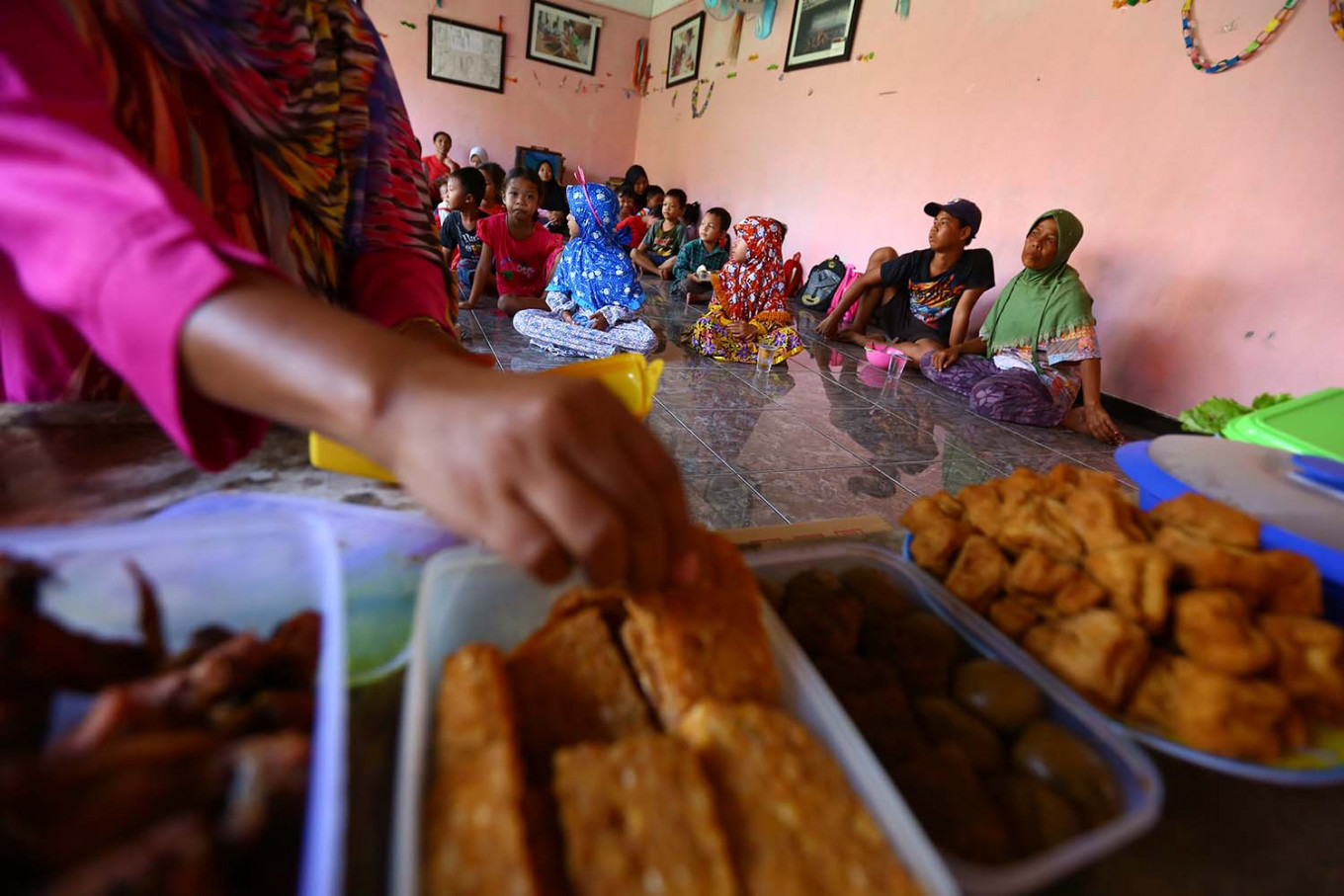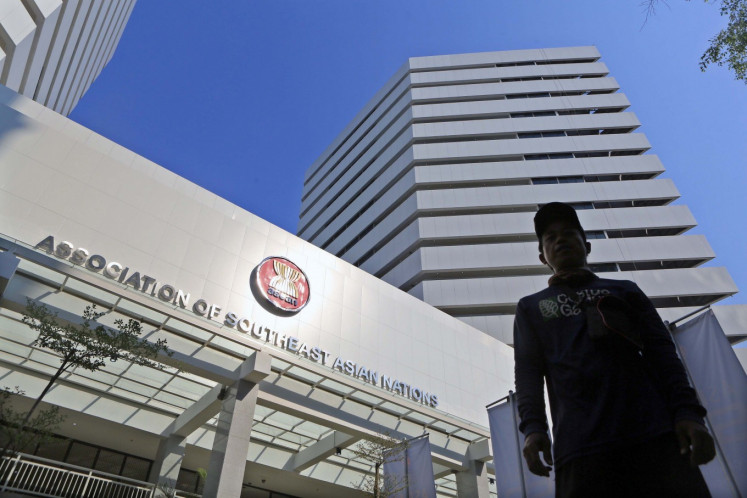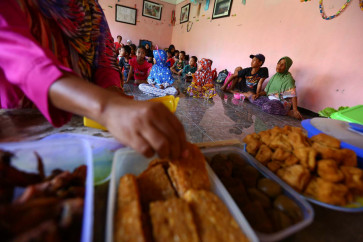Popular Reads
Top Results
Can't find what you're looking for?
View all search resultsPopular Reads
Top Results
Can't find what you're looking for?
View all search resultsAnalysis: BOS fund suggested to finance Prabowo's free lunch program
Change text size
Gift Premium Articles
to Anyone
T
he school operational assistance (BOS) fund has been put forth as a possible financing source for Prabowo Subianto's free school lunch program, the presumptive winner's key campaign promise. However, the proposal has met with stiff opposition, particularly from teachers' associations that believe using the fund will hinder further improvements to teachers' welfare and the quality of Indonesia's education.
The suggestion was first made by Coordinating Economic Minister Airlangga Hartarto, who said the relatively structured administrative and funding systems at elementary and junior high schools were suited to disbursing the BOS fund specifically for the free lunch program. Airlangga did not, however, supply any details on how this could be implemented, including what proportion of the BOS fund should be earmarked for this purpose.
Following his suggestion, Airlangga's expert staffer Ahmad Zeki Iskandar explained that the BOS fund was divided into two parts: a regular fund and an affirmation fund. The regular BOS fund is intended to support school operations, such as facilities maintenance, the provision of multimedia learning tools and the wages of contract teachers, while the affirmation BOS fund is allocated for schools in poor and disadvantaged areas as determined by the Education, Culture, Research and Technology Ministry. Ahmad Zeki suggested that the affirmation fund could be used for the free lunch program to ensure "clear and more organized" monitoring of budgeting and allocation.
The suggestion to use the BOS fund for the free lunch program was immediately met with opposition from teachers' associations, particularly the Federation of Indonesian Teachers Associations (FSGI) and the Education and Teachers Association (P2G). They argued that the affirmation BOS fund was not sufficient to finance the program, the budget of which was reportedly estimated at around Rp 400 trillion (US$25.4 billion). They pointed out that the total BOS fund allocated in this year's state budget was only Rp 52.08 trillion (US$3.3 billion), 2.3 percent lower than last year's allocation of Rp 53.3 trillion.
Moreover, they expressed strong concern that the quality of education would decline if the BOS fund was used to finance the free lunch program, regardless of the money came from the regular or affirmation BOS fund, since it would cut into schools' operational needs and leave them struggling to pay contract teachers and utility bills. The BOS fund is part of the larger Educational Unit Operational Assistance (BOSP), which aims to support the country's 12-year compulsory education.
Just last month, reports circulated that Prabowo planned to address the challenge of funding the free lunch program by reducing government spending on energy subsidies, pointing out that the subsidies' distribution was often misdirected. He also laid out other options, such as increasing the tax ratio and pushing economic growth through industrialization, though experts on his team were still calculating these alternatives.
What’s More



















